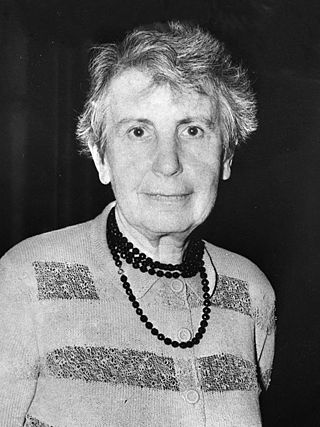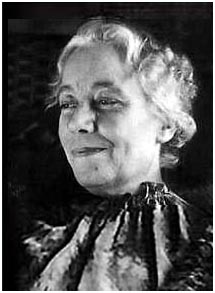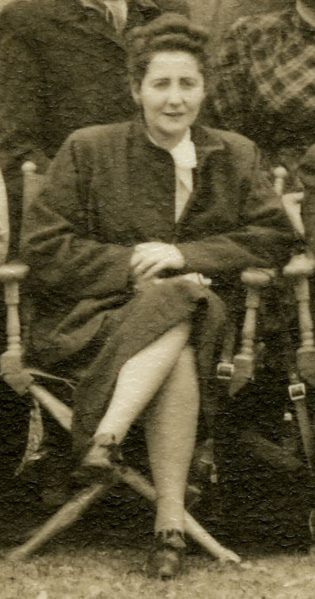Psychoanalysis is a set of theories and therapeutic techniques that deal in part with the unconscious mind, and which together form a method of treatment for mental disorders. The discipline was established in the early 1890s by Sigmund Freud, whose work stemmed partly from the clinical work of Josef Breuer and others. Freud developed and refined the theory and practice of psychoanalysis until his death in 1939. In an encyclopedic article, he identified the cornerstones of psychoanalysis as "the assumption that there are unconscious mental processes, the recognition of the theory of repression and resistance, the appreciation of the importance of sexuality and of the Oedipus complex." Freud's colleagues Alfred Adler and Carl Gustav Jung developed offshoots of psychoanalysis which they called individual psychology (Adler) and analytical psychology (Jung), although Freud himself wrote a number of criticisms of them and emphatically denied that they were forms of psychoanalysis. Psychoanalysis was later developed in different directions by neo-Freudian thinkers, such as Erich Fromm, Karen Horney, and Harry Stack Sullivan.

Alfred Ernest Jones was a Welsh neurologist and psychoanalyst. A lifelong friend and colleague of Sigmund Freud from their first meeting in 1908, he became his official biographer. Jones was the first English-speaking practitioner of psychoanalysis and became its leading exponent in the English-speaking world. As President of both the International Psychoanalytical Association and the British Psycho-Analytical Society in the 1920s and 1930s, Jones exercised a formative influence in the establishment of their organisations, institutions and publications.

Anna Freud CBE was a British psychoanalyst of Austrian–Jewish descent. She was born in Vienna, the sixth and youngest child of Sigmund Freud and Martha Bernays. She followed the path of her father and contributed to the field of psychoanalysis. Alongside Hermine Hug-Hellmuth and Melanie Klein, she may be considered the founder of psychoanalytic child psychology.
Sally Clark was an English solicitor who, in November 1999, became the victim of a miscarriage of justice when she was found guilty of the murder of her two infant sons. Clark's first son died in December 1996 within a few weeks of his birth, and her second son died in similar circumstances in January 1998. A month later, Clark was arrested and tried for both deaths. The defense argued that the children had died of sudden infant death syndrome (SIDS). The prosecution case relied on flawed statistical evidence presented by paediatrician Professor Sir Roy Meadow, who testified that the chance of two children from an affluent family suffering SIDS was 1 in 73 million. He had arrived at this figure by squaring his estimate of a chance of 1 in 8500 of an individual SIDS death in similar circumstances. The Royal Statistical Society later issued a statement arguing that there was no statistical basis for Meadow's claim, and expressed concern at the "misuse of statistics in the courts".
Margaret Schönberger Mahler was an Austrian-American psychiatrist, psychoanalyst, and pediatrician. She did pioneering work in the field of infant and young child research. On the basis of empirical studies, she developed a development model that became particularly influential in psychoanalysis and Object relations theory. Mahler developed the separation–individuation theory of child development.

Abraham Arden Brill was an Austrian Empire-born psychiatrist who spent almost his entire adult life in the United States. He was the first psychoanalyst to practice in the United States and the first translator of Sigmund Freud into English.

"Fair Margaret and Sweet William" is a traditional English ballad which tells of two lovers, of whom either one or both die from heartbreak. Thomas Percy included it in his folio and said that it was quoted as early as 1611 in the Knight of the Burning Pestle. In the United States, variations of Fair Margaret have been regarded as folk song as early as 1823.
The Independent Police Conduct Authority is an independent civilian oversight body that considers complaints against the New Zealand Police and oversees their conduct. It derives its responsibilities and powers from the Independent Police Conduct Authority Act. Under section 12(1) of the Act, the Authority's functions are to receive complaints alleging misconduct or neglect of duty by police employees; or concerning any practice, policy, or procedure of New Zealand Police and to take action as contemplated by the Act. It may also investigate any police incident involving death or serious bodily harm and make recommendations to the Commissioner of Police based on those investigations.
Margaret Frances Jane Lowenfeld was a British pioneer of child psychology and play therapy, a medical researcher in paediatric medicine, and an author of several publications and academic papers on the study of child development and play. Lowenfeld developed a number of educational techniques which bear her name and although not mainstream, have achieved international recognition.
Lynette Boggs-Perez is a former Republican politician in Clark County, Nevada, and Bexar County, Texas, and the winner of the Miss Oregon 1989 scholarship pageant. She went by the name of Lynette Boggs McDonald for most of her political career and returned to her maiden name after a 2007 divorce. She remarried in 2017 and both personally and professionally is known as Lynette Boggs-Perez.

Susan Sutherland Isaacs, CBE was a Lancashire-born educational psychologist and psychoanalyst. She published studies on the intellectual and social development of children and promoted the nursery school movement. For Isaacs, the best way for children to learn was by developing their independence. She believed that the most effective way to achieve this was through play, and that the role of adults and early educators was to guide children's play.

Karen Horney was a German psychoanalyst who practiced in the United States during her later career. Her theories questioned some traditional Freudian views. This was particularly true of her theories of sexuality and of the instinct orientation of psychoanalysis. She is credited with founding feminist psychology in response to Freud's theory of penis envy. She disagreed with Freud about inherent differences in the psychology of men and women, and like Adler, she traced such differences to society and culture rather than biology.
A lay analysis is a psychoanalysis performed by someone who is not a physician; that person was designated a lay analyst.
The Paris Psychoanalytical Society (SPP) is the oldest psychoanalytical organisation in France. Founded with Freud’s endorsement in 1926, the S.P.P. is a component member of the International Psychoanalytical Association (I.P.A.) as well as of the European Psychoanalytical Federation (E.P.F.).
Daniel Lagache was a French physician, psychoanalyst, and professor at the Sorbonne. He was born and died in Paris.
Martha Harris, née Dunlop was a British Kleinian psychoanalyst of children and adults. From 1960 to 1980 she was head of the Child Psychotherapy service at the Tavistock Clinic, taking over from Esther Bick, who had established a foundational method of disciplined infant observation. Harris was responsible for the subsequent expansion in the number of English and international trainees at the Tavistock, and for laterally developing the training into what became known as the Tavi Model. This model, in which infant observation continues to play a pre-eminent role, has been adopted, with modifications, in other European countries and in South America: such as the GERPEN in France, the six Martha Harris Study Centres in Italy, and the São Paulo Mother-Baby Study Centre in Brazil.

Margaret Cornelia Morgan Lawrence was an American psychiatrist and psychoanalyst, gaining those qualifications in 1948. Her work included clinical care, teaching, and research, particularly into the presence and development of ego strength in inner-city families. Lawrence studied young children identified as "strong" by their teachers in Georgia and Mississippi, as well as on sabbatical in Africa in 1973, writing two books on mental health of children and inner-city families. Lawrence was chief of the Developmental Psychiatry Service for Infants and Children at Harlem Hospital for 21 years, as well as associate clinical professor of psychiatry at Columbia University College of Physicians and Surgeons (P&S), retiring in 1984.
Jessie Margaret Murray was a British psychoanalyst and suffragette. Born in India, she moved to the UK when she was 13. She undertook studies in medicine with the College of Preceptors and Worshipful Society of Apothecaries and at the University of Durham and University College London. She also attended lectures by the French psychologist Pierre Janet at the Collège de France, Paris.

Elisabeth Rozetta Geleerd Loewenstein was a Dutch-American psychoanalyst. Born to an upper-middle-class family in Rotterdam, Geleerd studied psychoanalysis in Vienna, then London, under Anna Freud. Building a career in the United States, she became one of the nation's major practitioners in child and adolescent psychoanalysis throughout the mid-20th century. Geleerd specialized in the psychoanalysis of psychosis, including schizophrenia, and was an influential writer on psychoanalysis in childhood schizophrenia. She was one of the first writers to consider the concept of borderline personality disorder in childhood.

Clara Lazar Geroe born Klára Lazar was a Hungarian-Australian psychiatrist and psychoanalyst. She began practicing psychoanalysis in 1931 in Budapest and in 1940 in Melbourne.








